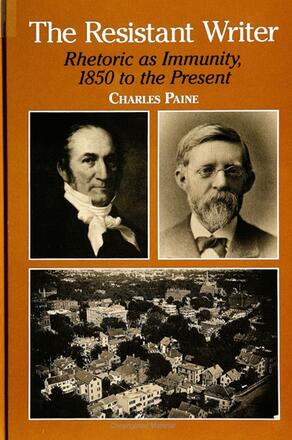
The Resistant Writer
Rhetoric as Immunity, 1850 to the Present
Alternative formats available from:
A cultural history of the origins of composition studies that sheds new light on contemporary debates regarding the role of rhetoric in student transformation.
Description
The Resistant Writer integrates two lively sub-fields in rhetoric and composition: nineteenth-century composition history and contemporary issues about teaching cultural studies in composition. Examining the broad cultural anxieties that nineteenth-century intellectuals faced reveals that training in composition was envisioned as more than the means for producing competent writers. The training also reacted to and tried to ameliorate the nineteenth-century "crisis in public discourse," this one brought about not by television, commodity capitalism, or the World Wide Web, but by the then-dominant medium of public discussion, the newspaper.
Paine carefully reveals that today's writing teachers are not the first to desire that the composition classroom have social import beyond the academy. These thoughtful new insights from composition's origins form an intriguing critique of contemporary "cultural studies and composition" theories of student transformation.
Charles Paine is Assistant Professor of English at the University of New Mexico.
Reviews
"I see this book as a highly original contribution, full of new information, based on careful scholarship and bristling with original juxtapositions. Paine has reconceptualized the recent history of rhetoric, producing a book everyone in the field will need to read and absorb." — John C. Brereton, author of The Origins of Composition Studies in the American College, 1875–1925: A Documentary History
"I appreciate Paine's argument that the situated history of composition has cooperated with a protection, not an activation, of the student-as-individual who is not a participant in receiving and forming public persuasion. This argument about the isolated, self-protected 'individual' student is quite important now, as is Paine's critique of Berlin and others' histories on the basis of their avoiding 'local,' more thorough investigations." — Susan Miller, University of Utah